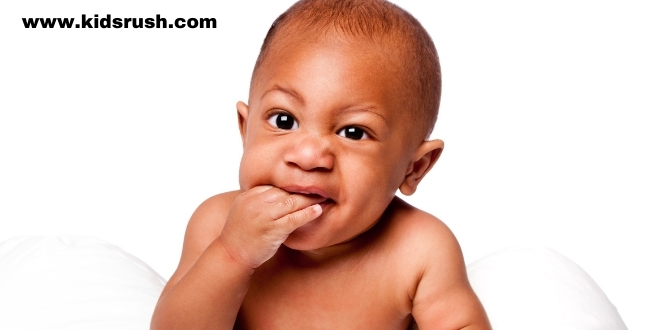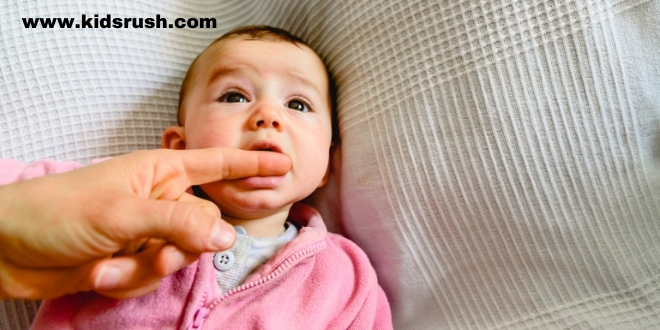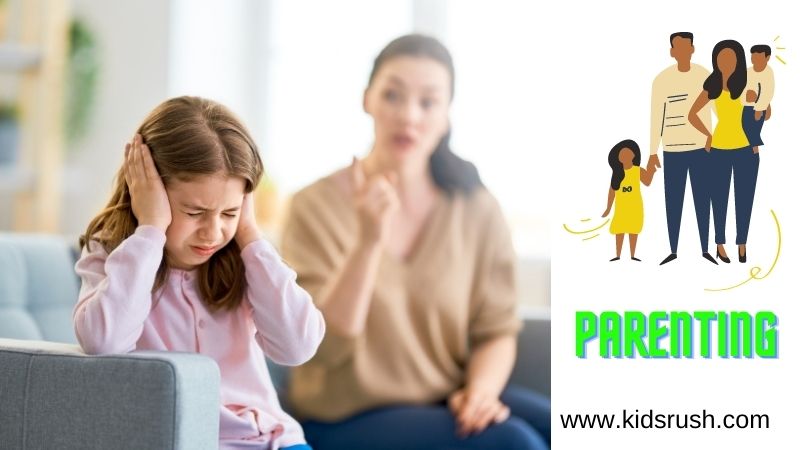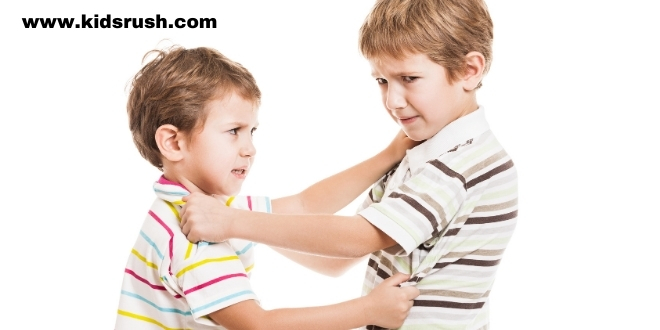It is common for children to bite during a phase that occurs when they are between two and three years old. When children bite, they do this because they begin to have feelings they did not have before (such as anger, frustration, and jealousy) and they do not know how to channel it into something positive.
It may not be a serious problem, but it is still quite common. They do not know how to express it as they feel so they do it by biting. [1]
Why do children bite?

You must understand what is behind this behavior to get your child to stop it. It generally occurs when a child is supervised by a person other than the parents or when the parents are not nearby.
Sometimes, however, the children change their siblings or parents. Biting is an expression of something and it is important to sort out what. Children bite due to a situation that arises in the home, and it can be any of the following:
- Loss of a close relative or parent
- The arrival of a new child, which makes the first child jealous
- Divorce
- A move or an environment that the child is not used to
- Witnessing domestic violence
- They feel frustrated, lonely, or helpless
- Children need caring and more freedom
- They are upset or overstimulated
- They bite in response to being bitten themselves
- Children can also bite to express love
- Biting can also be an expression of anger or fear
Read Also: Guide for parents to teach your child not to hit others
What should you do when children bite?

It is common for a child to bite at a young age, but the child will probably stop doing this as it gets older. However, knowing that it is a common problem does not make the parents feel ok with this behavior. It is also not appreciated by the parents of the child who has been bitten.
If you find that you are in a situation where you see your child biting another child or a teacher, we suggest that you follow some of these tips. It is best to help your child get over this stage as quickly as possible.
Take care of the child who has been bitten, but does not ignore the one who has bitten
If the child bites another child, take care of the child who has been bitten calmly and calmly, but do not ignore the one who has bitten. First, help the victim and make sure that medical care is not needed.
Make sure the child who has been bitten realizes that it will not get your attention through this behavior.
You should make sure that the child who bites takes care of the victim so that they can see that their actions caused pain and injury.
Do not be mean to the child – this will only make the child isolate himself and will not want to explain why he behaved in this way.
Read Also: Perinatal grief: Sad reality behind it
Stay calm and do not use punishment when children bite

It is easy to get angry when you see this aggressive behavior, but you need to stay calm. A violent response, extreme reprimands, or punishments will only feed the anger and frustration that gave rise to the bite from the very beginning.
You should talk calmly with the child and explain that it hurts to be bitten and that it is a behavior that should not be repeated no matter how angry the child feels.
Talk to your child about how it should behave when it gets angry
Tell the child that he or she should seek help from an adult when he or she feels angry. It is common to bite in preschools so you should teach your child to talk to the teacher first.
If another child took a toy from the child, he must learn to tell the other child that he did not like what he was doing. They should then talk to the teacher so that he can resolve the situation.
It is very important that you also talk to the teacher or the principal. You should find out how they handle aggressive behavior and situations where children are angry at each other.
Read Also: How to teach your baby to sit up by himself
Use positive reinforcement
Using positive reinforcement is significantly more effective than focusing on aggressive behavior. After the age of three, children begin to enjoy socializing with other children. You should make sure to encourage their good behavior as they play quietly with their friends.
Also, talk to them about biting. When they eat, you explain why we bite things like bread and fruits and why they should not bite their friends.
Never bite a child
Some people think that by biting the baby they will make it understand that it hurts. Nothing could be further from the truth. The child will instead learn that it is an acceptable way to express their anger.
What you do yourself in front of the child shows a stronger message than something you say to it. Never bite a child, not even jokingly.
Watch and intervene when children bite

Children will learn to control themselves, but you need to be aware of the factors that cause biting. You will then be able to see what can create such a situation, and you will also be able to prevent it from happening from the beginning.
When you realize that your child will bite someone, you must be determined. You should calmly remove the child from the situation and explain why it is wrong to bite.
Conclusion
You should remind the child that you love it. It is important.
The love you show your child will help it express the feelings that led to the bite. You should be aware that you are not ok with this behavior but that you will never stop loving the child.
